MATTERS OF OBSESSION
Women call the tunes in SA music industry
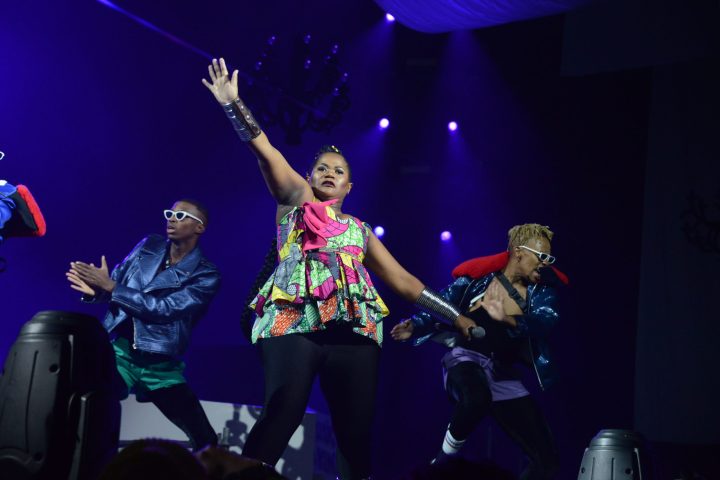
South African women have always been a driving force in the music industry, even in the face of adversity.
When I ask historian and writer, Ntombizikhona Valela, about the skewed dynamics traditionally at play in the South African electronic music scene, her response is candid. “Women lending their melodies or poetry to this genre tend to not enjoy the same level of appreciation as the men behind the beats.”
A number of intricate elements contribute to the perfect production of dance music, including the voices that create the sounds and words listeners attach to the melodies and later sing along to. From the days when Queen Sesoko and Lebo Mathosa prescribed the sound of kwaito, to Mathosa later breathing new life into the genre of DJs at Work’s first house music production Hey DJ, women’s voices have played a pivotal role in shaping the progression of electronic music.
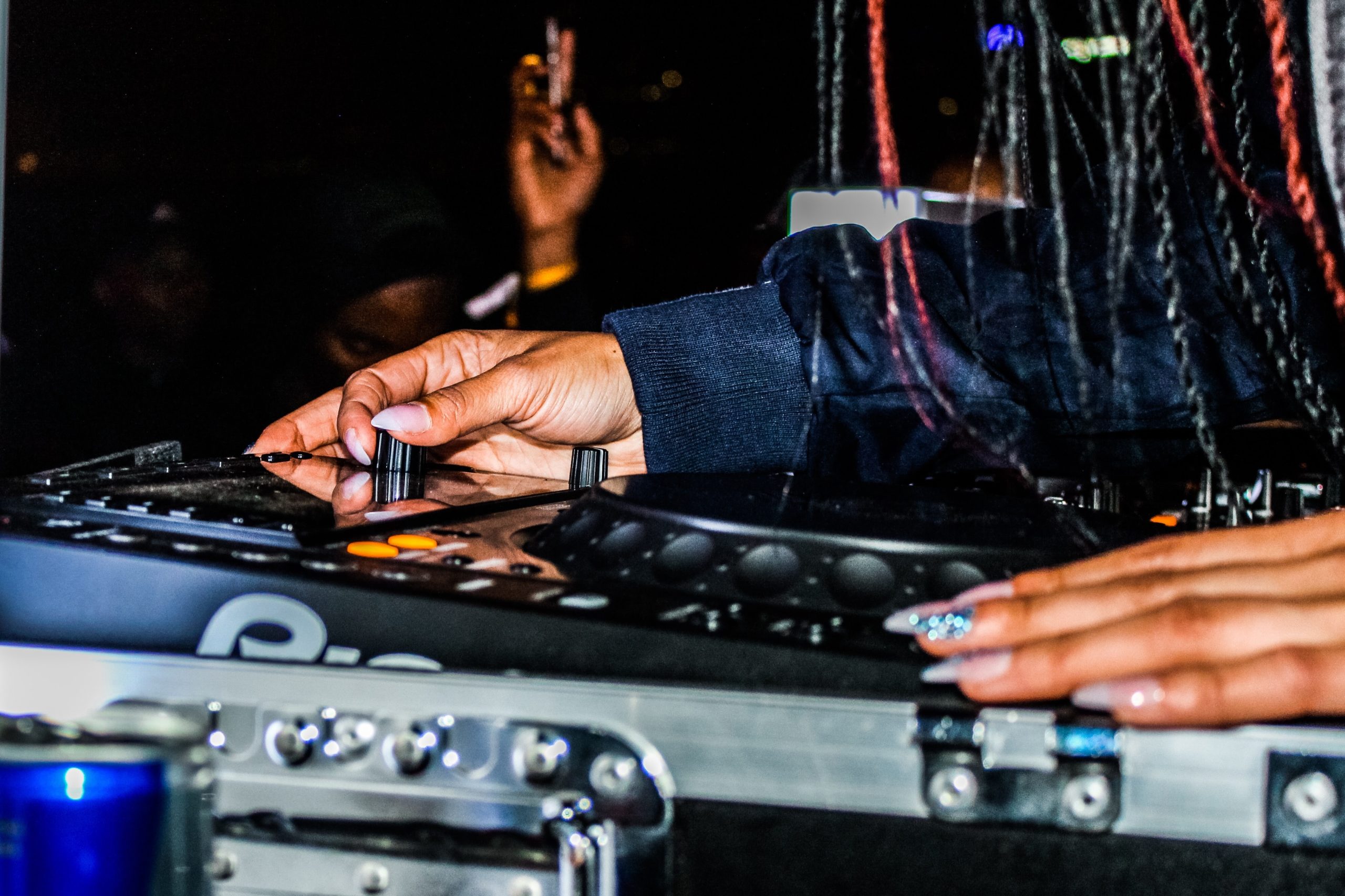
Bongani Ngcobo for Unsplash
“Singers, poets and rappers have added a layer we’ve never quite seen on our shores compared to Europe or the United States. South African house music has this symbiotic relationship with the beat and the vocals, particularly in the mainstream. And it’s women who lead the way here,” says Ntombizikhona Valela.
It was music that featured the voices of Thiwe Mbola and Bucie that helped turn producer and DJ Black Coffee into a household name. And even though Brothers of Peace’s blend of bass, keys and guitar gave That’impahla a soulful feel, it’s Tamara Dey’s vocal prowess that turned it into an unforgettable masterpiece. Similarly, Ntsiki Mazwai’s poetry and cadence added a haunting layer to former DJ duo Kentphonik’s otherwise repetitive production of Uwrongo.
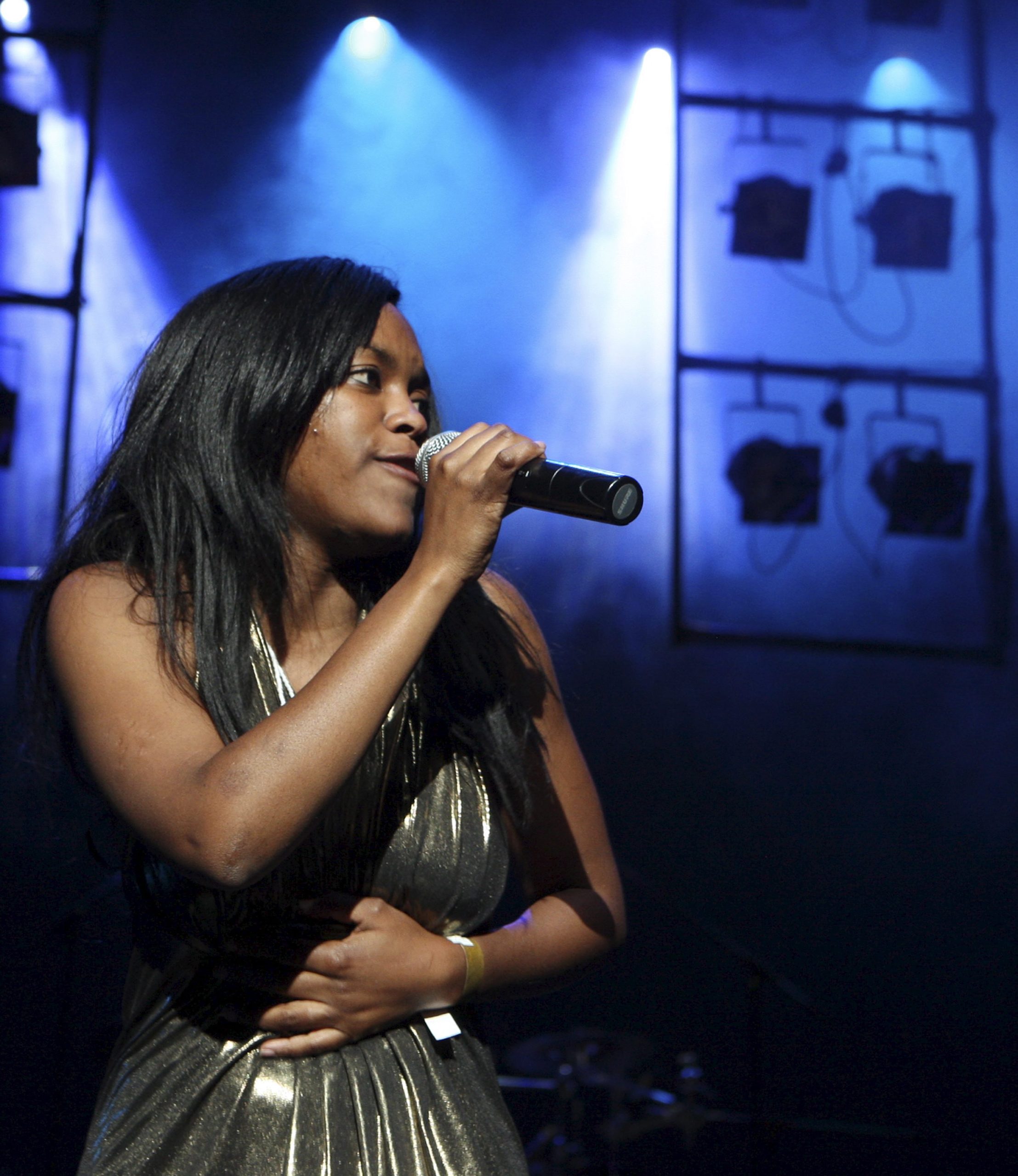
Thiwe Mbola performs at the Macufe Divas Concert, held at the Performance Arts Centre in Bloemfontein, South Africa on 8 October 2010. (Photo by Gallo Images/City Press/Lucky Nxumalo)
Producer and DJ Lulo Cafe’s collaboration with songstress Nothende Madumo saw him making waves internationally. The 2010 single, I Wanna Love You, had at least three remixes in global rotation by 2011, all while she hadn’t been paid for her contribution to its success. In 2016, she revealed on Twitter that she was yet to be compensated for writing and singing on the smash hit. A report filed in June this year suggests that her cheque remains in the mail.
It seems a sacrilege when you consider how a song’s vocals are what make it live forever. “It’s the vocals on a track that are predominantly used on remixes. There are so many ways in which music is carried by the voices of women: even contemporary covers of songs use only the vocals and lyrics, yet vocalists don’t get equal credit and compensation as producers.
“Another thing is that the work that vocalists do is hardly recognised as technical skill, yet vocalists are mostly classically trained professionals who have usually achieved success in other genres as well. And when they aren’t, their excellence is as a result of years of refining and nurturing the talent,” says record label owner and house music vocalist Jackie Queens.
A lot has stayed the same, but there has been a shift when you consider the places the likes of DJ Cndo, DJ Zinhle, Ms Cosmo, Ms Pru and more have been able to carve out as DJs and producers in the male-centric space, Valela points out.
“To me, it feels like more women entertainers are finding their voices and that there is some acceptance of the idea of women being in positions of influence at the moment,” notes Mandisa Ntsinde, the culture reporter at Z’khiphani TV.
Queens suggests the changes aren’t necessarily due to industry stakeholders adopting more inclusive attitudes to women artists. “It’s things like social media making women’s impact undeniable. The absence of gatekeepers in that space makes it easier for women to prove they can pull an equally engaged fanbase as the men in the industry, if not more,” she says.
Broadcasting maven and former presenter of classic South African music show Studio Mix, Melanie Bala, recalls a time when the antagonism against women who insisted on having agency over their creative output was at its peak.
“Women in that time were very much expected to be products of the record label industrial complex. For instance, artists like Thandiswa Mazwai and the late Lebo Mathosa were often labelled as difficult by male counterparts, purely based on their refusal to compromise their respective artistic visions,” she explains.
Prejudice that Queens says she experienced as well. “To a large extent the idea of women being ‘easy to work with’ refers to how much other parties can benefit from the collaboration without us asking for much else in return. It has far less to do with one’s actual attitude,” she says.
“Men create a boy’s club environment where they protect and support each other and prescribe a narrow scope for how women can exist in the space. It’s as though they struggle to imagine women outside of the parameters of sexual or romantic interests or administrative background support,” she adds.
Lulama Mali, vice chair of the Women in Music organisation in South Africa, notes that their interest is in providing a counter balance to that. She also emphasises that men’s prevalence in positions of power as executives, managers and agents is what has impeded the pace at which many women thrive, as well as their trajectories.
In Queens’ experience, the resistance to women managing their careers outside of those limitations is multifold, and it’s the financial implication that makes it such a pressing issue.
“What I’ve started doing is recording my demos at a different studio to the one where a track is being produced. Once it is approved, I then ask to be sent the paperwork to register my copyright before producing the vocals.
“Making that demand has halted many recording processes where producers were keen and excited to get the projects out, but are put off by my asking to ensure due credit for creating the melodies, writing the lyrics and performing the songs,” she says.
It’s not uncommon for vocalists who record in studios with producers to never get given the paperwork, and then not earn the monies that are due to them.
Then, another dynamic at play is the romantic-turned-business partnerships in the entertainment industry. This is usually a setup where the woman – usually a vocalist and the man a producer, label owner or both – is a star in her own right and is, often by and large, responsible for the vocals on major hits – as Abashante’s Queen Sesoko was for many of the tracks that ensured Arthur Mafokate’s status as the King of Kwaito™.
What’s curious about collaborations of this nature is that the women don’t always get to enjoy as illustrious a career, despite being linked to men who are dominating the industry in every respect.
This makes an artist like Babes Wodumo a point for contemplation. Perhaps she presents an overlap between the traditional and the newer approaches to artistry in that her career benefits from social media support and there seems to be an opportunity for her to carve her own path – but she’s still constrained by the direction set by her management.
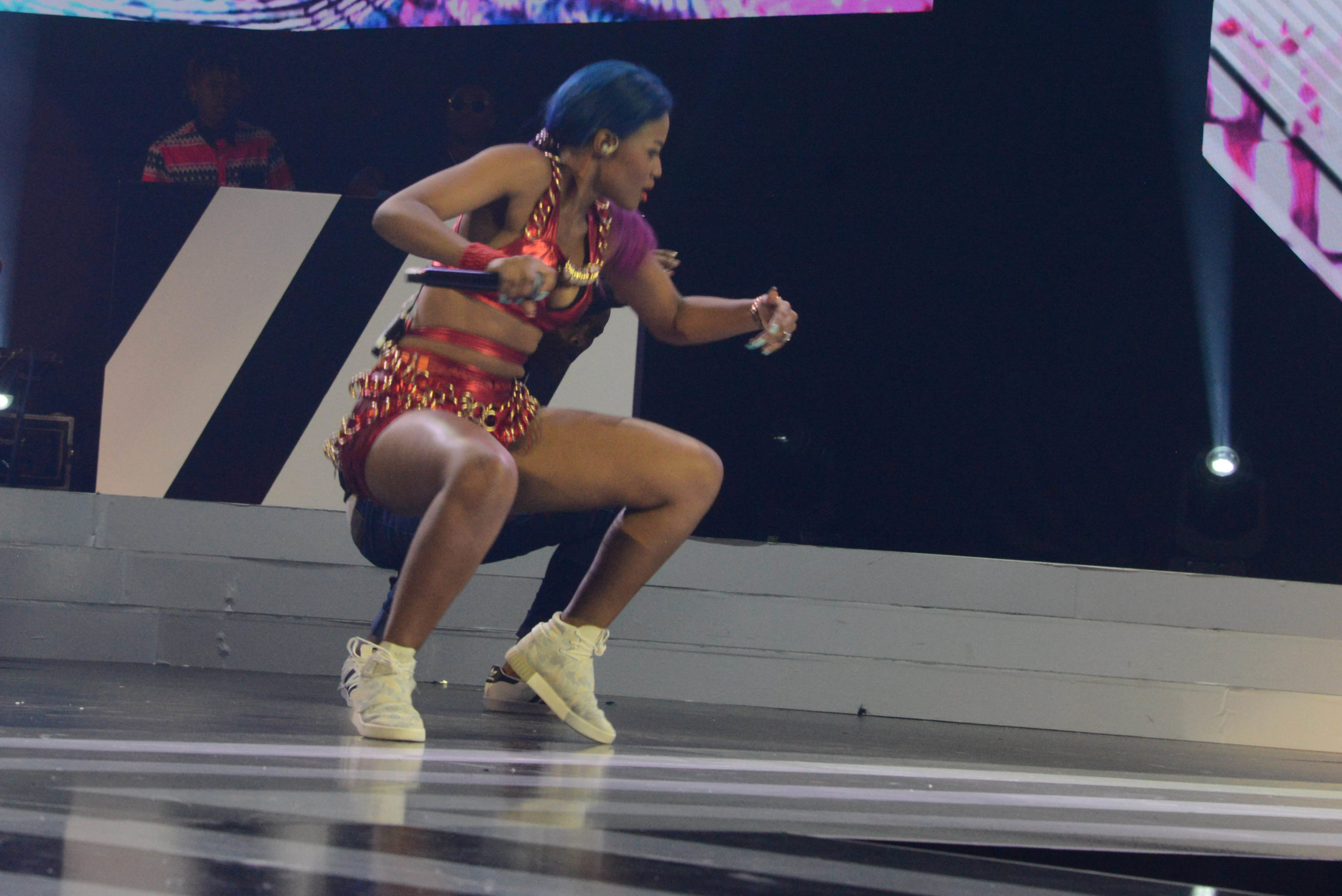
Babes Wodumo performs during the 23rd annual South African Music Awards (SAMA 23) ceremony at Sun City on May 27, 2017 in Rustenburg, South Africa. (Photo by Gallo Images / Frennie Shivambu)
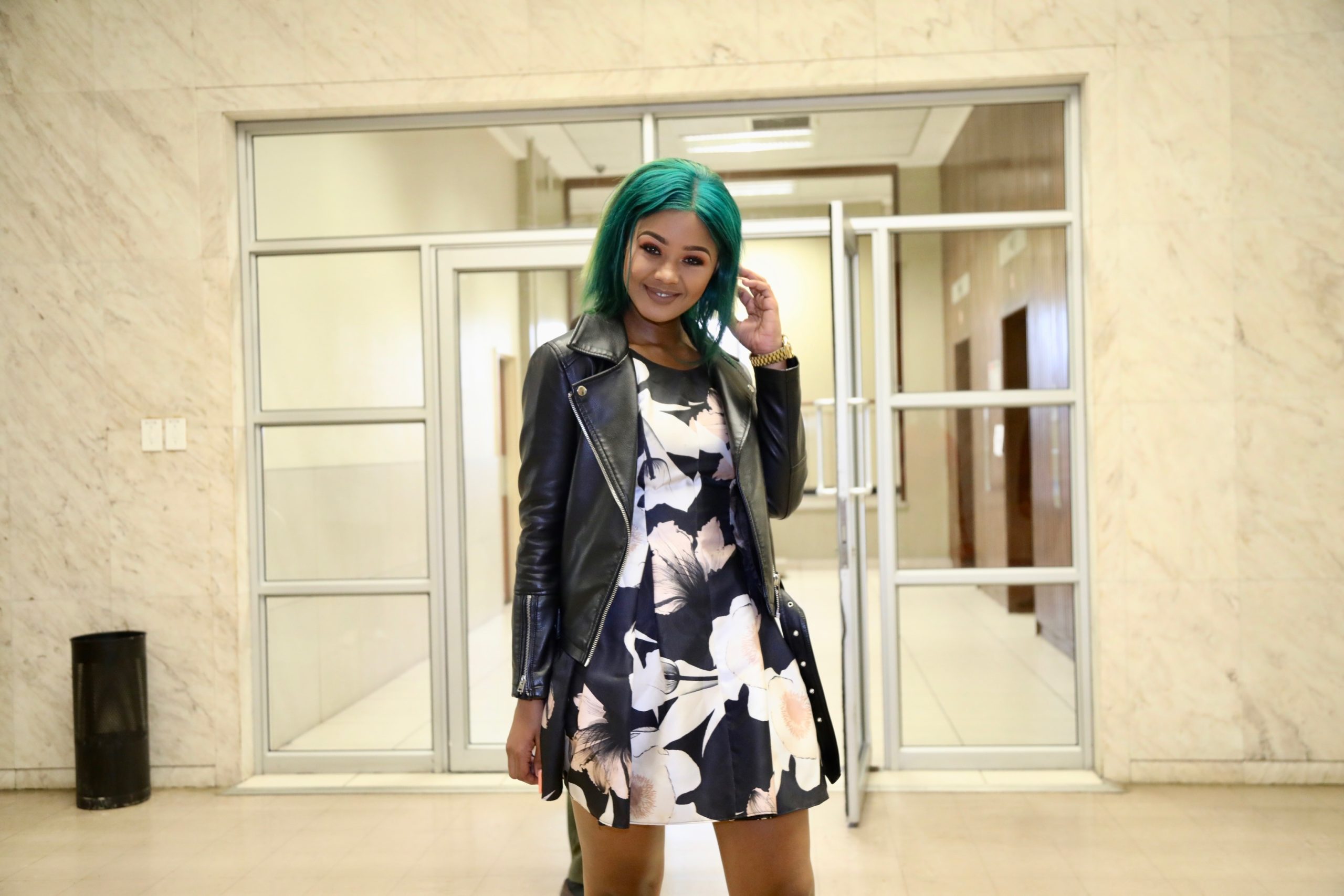
Bongekile Simelane known as Babes Wodumo during her appearance for common-assault charges at the Durban Magistrate Court on April 24, 2019 in Durban, South Africa. (Photo by Gallo Images/Sowetan/Jackie Clausen)
The BET-nominated musician became an instant gqom sensation when her first single Wololo dropped. The social media hype around her being one of the artists to cross the genre over to the mainstream resulted in dance challenge videos being popularised. Following the release of her debut album Gqom Queen Vol. 1, she made an appearance on the Black Panther soundtrack and has had a number of international features since.
It is difficult to make a complete judgement on Babes Wodumo’s choices because each deal is unique and there are many factors at play in her situation, but a few details about how she’s being managed do raise eyebrows. It is well worth noting that her relationship with Big NUZ bandmate Mampintsha (Mandla Maphumulo) is known to be abusive; he has assaulted her in full view of her Instagram followers on a live video and they later released a track titled Khona Iyngane Lay’Ndlini, referencing a line Mampintsha said before slapping the singer in the video.
The suppression obviously doesn’t happen to performers in a vacuum. Many successful women in entertainment can attest to similar experiences. “I was 19 when I started out on Studio Mix. And even though it was a good experience overall, I do look back on instances where I felt like I could have been more assertive.
“But the environment just didn’t lend itself to young women taking up that kind of space. Some of these are things I’m realising in retrospect,” says Bala.
The male dominance of the industry has never been an accurate representation of South African audiences’ culture of consumption in any case. Women have drawn in significant numbers and created lasting legacies as vocalists, poets, rappers, presenters, writers, actresses and more. It’s even said that the practice of enlisting female vocals on house tracks is done to increase the chances for radio play. In parallel, music shows on primetime television slots tend to have talented women as part of the presenter cast. Shows like Studio Mix, Technics Heart of the Beat and Live AMP have introduced South Africans to personalities who continue to have an impact outside of those productions.
“We do need to take the work of women like Busiswa Gqulu and Moonchild Sanelly seriously, from a writing point of view. They have emerged as kingmakers in the house music scene and I doubt there are women whose voices matter more at this point in our pop culture,” said Ntombizikhona Valela.
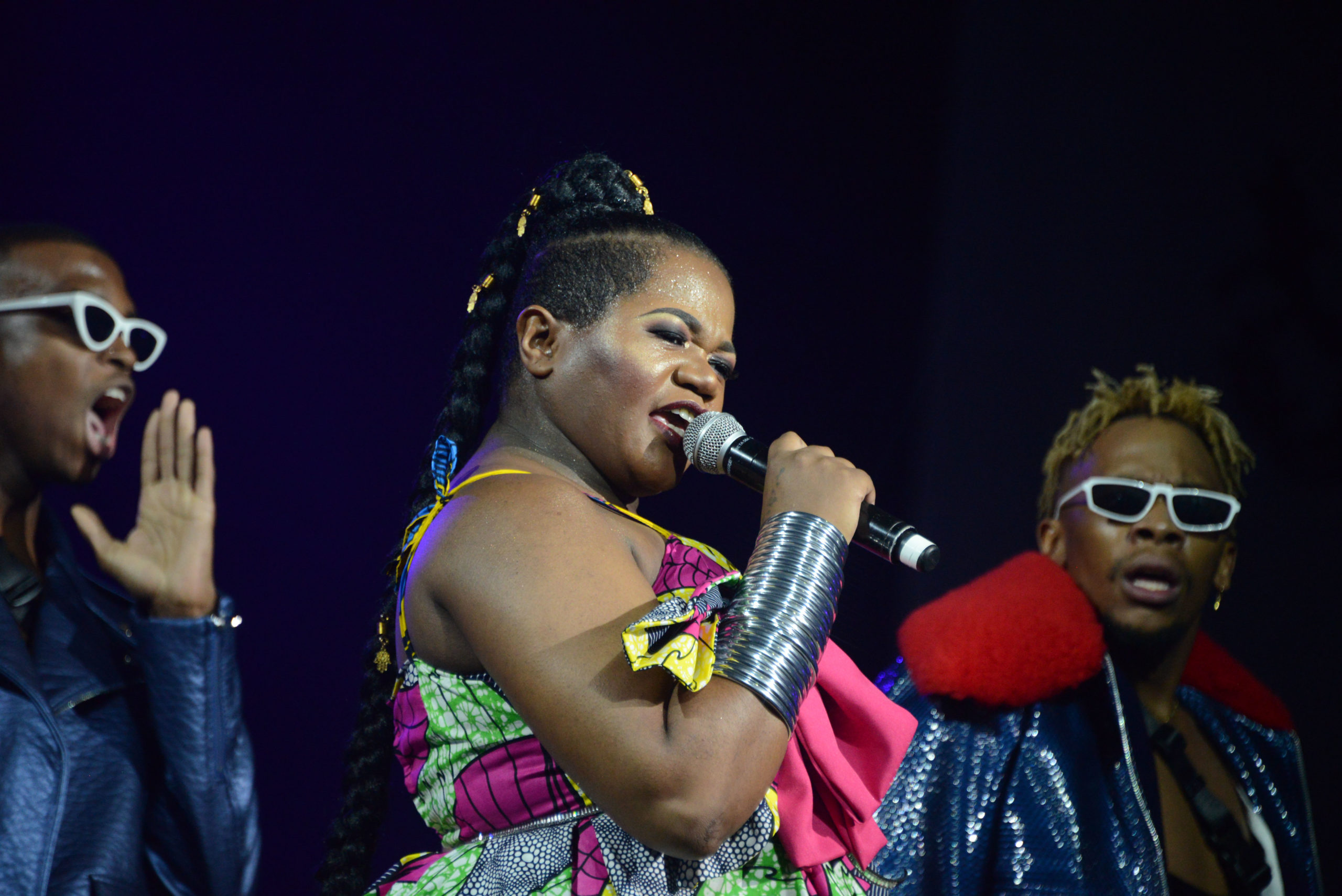
Gqom and House music sensation, Busiswa Gqulu performs during South African DJ, Black Coffee’s Music Is King concert at Ticketpro Dome on December 15, 2018 in Ticketpro Dome, South Africa. (Photo by Gallo Images / Frennie Shivambu)
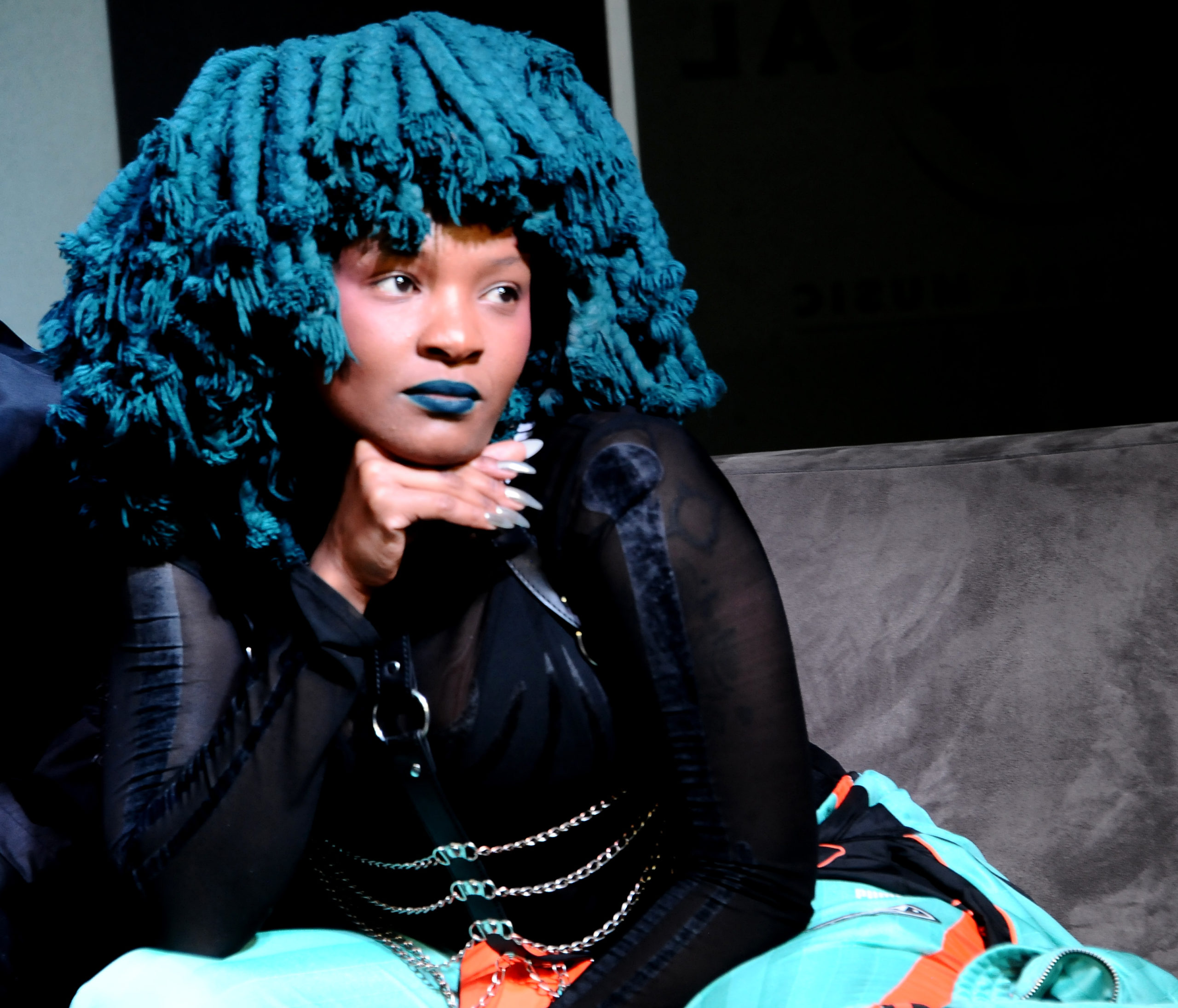
Moonchild Sanelly during the Music Is King media launch held at the Universal Studios on October 02, 2019 in Johannesburg, South Africa. (Photo by Gallo Images/Oupa Bopape)
How both artists have finessed voices that transcend the subgenres of amapiano and gqom, but are synonymous with South African dance music, is a fact that shouldn’t be overlooked.
“Busiswa and Moonchild have featured on arguably the biggest albums to come out in the last five years, and now alongside a global phenom who has set new standards in music for an entire generation, with Beyonce Knowles’ Black is King.
“That is major! And neither one of them had to switch their style up to fit into that project,” continues Ntsinde.
Theirs is also not just a breakthrough for women; the strong and emboldened message their music carries affirms many marginalised subsets.
“Through their subject matter and collaborations, they respectively affirm fat women, black women, queer people and so many others who have been underrepresented in this space. The reach coupled with the message in the music is what is so potent,” emphasises Mandisa Ntsinde.
Perceiving the intersection between entertainment and social issues is one way to activate audiences to demand a better world.
“With the scales of power continuously tipping in favour of men, and women having to look at ways of bypassing a system that isn’t too beneficial for them, there is a lot more unpacking that needs to be done.
“South Africa has the highest rate of femicide in the world, but the entertainment industry is yet to have its #MeToo moment. We need to think about how that dynamic impacts on the visibility of women in the music industry, be it radio rotation, budgets for music videos, everything,” asserts Valela.
“The issue of sexual harassment is so pervasive. I know of a lot of women who have had to deal with producers saying they will work with them in exchange for sex.
“I think we don’t discuss and condemn it enough because people in the industry want to maintain connections and access to people in positions of power,” adds Jackie Queens.
Melanie Bala acknowledges the entertainment industry’s predatory nature: “I don’t think there is a woman in this industry who can say that they haven’t been put in an awkward position with regard to sexual harassment. And it’s a difficult conversation to navigate because it isn’t spoken about enough, so one can easily feel like they’re experiencing those challenges alone.
“And even worse, the bosses are usually male, so you don’t feel like you can go to them for help,” she says.
She also highlights how having Karen Vundla as her producer gave her a sense of security during her Studio Mix days. “I was lucky to have a boss who was a woman that I could go to and say, ‘listen, there is a cameraman who is making me feel uncomfortable’ and she would help me handle those situations. Most people didn’t have that safety net,” explains Bala.
Lulama Mali concludes by saying that even though it may sound simplistic, if all industry role players – including government – were to prioritise women’s safety and put an end to the culture of undermining and exploiting talent, women would thrive in a similar fashion as their male counterparts. DM/ML


















 Become an Insider
Become an Insider
Comments - Please login in order to comment.